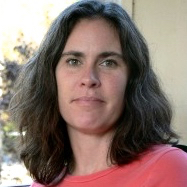Rascals case in brief
In the beginning, in 1989, more than 90 children at the Little Rascals Day Care Center in Edenton, North Carolina, accused a total of 20 adults with 429 instances of sexual abuse over a three-year period. It may have all begun with one parent’s complaint about punishment given her child.
Among the alleged perpetrators: the sheriff and mayor. But prosecutors would charge only Robin Byrum, Darlene Harris, Elizabeth “Betsy” Kelly, Robert “Bob” Kelly, Willard Scott Privott, Shelley Stone and Dawn Wilson – the Edenton 7.
Along with sodomy and beatings, allegations included a baby killed with a handgun, a child being hung upside down from a tree and being set on fire and countless other fantastic incidents involving spaceships, hot air balloons, pirate ships and trained sharks.
By the time prosecutors dropped the last charges in 1997, Little Rascals had become North Carolina’s longest and most costly criminal trial. Prosecutors kept defendants jailed in hopes at least one would turn against their supposed co-conspirators. Remarkably, none did. Another shameful record: Five defendants had to wait longer to face their accusers in court than anyone else in North Carolina history.
Between 1991 and 1997, Ofra Bikel produced three extraordinary episodes on the Little Rascals case for the PBS series “Frontline.” Although “Innocence Lost” did not deter prosecutors, it exposed their tactics and fostered nationwide skepticism and dismay.
With each passing year, the absurdity of the Little Rascals charges has become more obvious. But no admission of error has ever come from prosecutors, police, interviewers or parents. This site is devoted to the issues raised by this case.
On Facebook
Click for earlier Facebook posts archived on this site
Click to go to
Today’s random selection from the Little Rascals Day Care archives….
Click for earlier Facebook posts archived on this site
Click to go to
Today’s random selection from the Little Rascals Day Care archives….
The chilling body count of ‘personality-driven’ prosecutors

kristincollinswriting.com
Kristin Collins
July 11, 2016
“This week Harvard Law School’s Fair Punishment Project issued a report detailing the legacies of five of the nation’s deadliest prosecutors, and (Joe Freeman) Britt was among them. The report highlights what it calls ‘personality-driven capital sentencing,’ which leads overzealous prosecutors with a flair for courtroom theatrics and a desire for personal fame to pursue death sentences at disproportionate rates….
“This personality-driven system means that a death sentence often says less about the severity of the defendant’s crime, than it does about the prosecutor’s enthusiasm and courtroom skills. Personality-driven prosecutions can also lead to wrongful convictions, when prosecutors making winning cases a higher priority than seeking justice….
“Britt often cut corners to win. Appellate courts found that Britt committed misconduct in 14 of his capital cases, the new report shows. His offenses included hiding evidence that might have proven defendants innocent and making inflammatory and improper statements to jurors….
“When they were exonerated by incontrovertible DNA evidence, Britt did not even have the heart to admit his mistake. Instead, he continued to loudly proclaim their guilt….”
– From “NC ‘deadliest prosecutor’ valued winning over justice, new report shows” by Kristin Collins at NC Coalition for Alternatives to the Death Penalty (June 30)
I shudder to speculate what might have happened in Edenton had North Carolina sanctioned capital punishment for child sex abuse. The Little Rascals prosecutors, most strikingly Nancy Lamb, bore many of the “personality-driven” characteristics seen in a Joe Freeman Britt:
- “A flair for courtroom theatrics and a desire for personal fame”? Check.
- “Hiding evidence that might have proven defendants innocent”? Check.
- “Inflammatory and improper statements to jurors”? Check.
- “Continued to loudly proclaim their guilt”? Check…..
![]()
Prosecution kept its eye on the (wrong) target
Dec. 28, 2011
“Throughout the trial, prosecuting attorneys (in the Little Rascals case) repeatedly pursued their hunches without an apparent desire to test an alternate theory. This resulted in a rather spectacular false admission by 6-year-old Andy, who had been a 3-year-old at the time of the alleged sexual abuse by Bob Kelly.
 “ ‘Prosecutor: Do you remember a time where you ever had to do anything to Mr. Bob’s hiney with your mouth?
“ ‘Prosecutor: Do you remember a time where you ever had to do anything to Mr. Bob’s hiney with your mouth?
“ ‘Andy: No, ma’am.
“ ‘Prosecutor: Do you remember telling Dr. Betty that one time you had to lick Mr. Bob’s hiney? Did that happen? Did you ever have to do that, that you didn’t want to do it?
“ ‘Andy: Yes, ma’am.’
“In reality, the prosecutor had made a mistake, thinking that the charge was that Andy had sodomized Bob Kelly, rather than the other way around. The state dropped this charge after it realized Andy had admitted to the wrong charge.
“This ought to have sensitized the prosecution to the very real dangers of pursuing a single hypothesis in the relentless manner we have described, but unfortunately it did not appear to have done so.”
– From “Jeopardy in the Courtroom: A Scientific Analysis of Children’s Testimony”
by Stephen J. Ceci and Maggie Bruck (1995)
Prosecutor believed he had closed the deal early on
March 22, 2013
“’There are some people who said we could have stopped after the first child testified.”
– District Attorney H.P. Williams Jr., expressing confidence that the jury was being persuaded by the state’s stream of child-witnesses against Bob Kelly, The Associated Press, Dec. 9, 1991
How to uncover ritual abuse: a foolproof recipe
Oct. 17, 2012
“Little Rascals is a most important case, because it demonstrates how the mind set of interviewers can be transmitted to the children and persuade them to disclose events that never happened. A San Diego grand jury which investigated child abuse observed:
Of particular interest is the information received about the Little Rascals case in North Carolina. Eighty-five percent of the children received therapy with three therapists in the town; all of these children eventually reported satanic abuse. Fifteen percent of the children were treated by different therapists in a neighboring city; none of (these) children reported abuse of any kind after the same period of time in therapy.
“In effect, the Edenton (multiple victim, multiple offender) case was a real-life replication of the type of laboratory experiment that could never be done for ethical reasons:
- Select a town or city in any area of the U.S. or Canada.
- Take 90 children, and divide them into two equally sized test and control groups.
- Have the test group interrogated by therapists who believe in ritual abuse, using direct and repeated questions.
- Have the control group independently interrogated by therapists who are skeptical of ritual abuse using general questioning.
- Compare rates of disclosures of ritual abuse from the two groups. “
The probable result would be that close to 100% of the test group and about 0% of the control group would reveal ritual abuse.”
– From “Ritual abuse cases in day care centers” on ReligiousTolerance.org, (Ontario Consultants on Religious Tolerance)











0 CommentsComment on Facebook